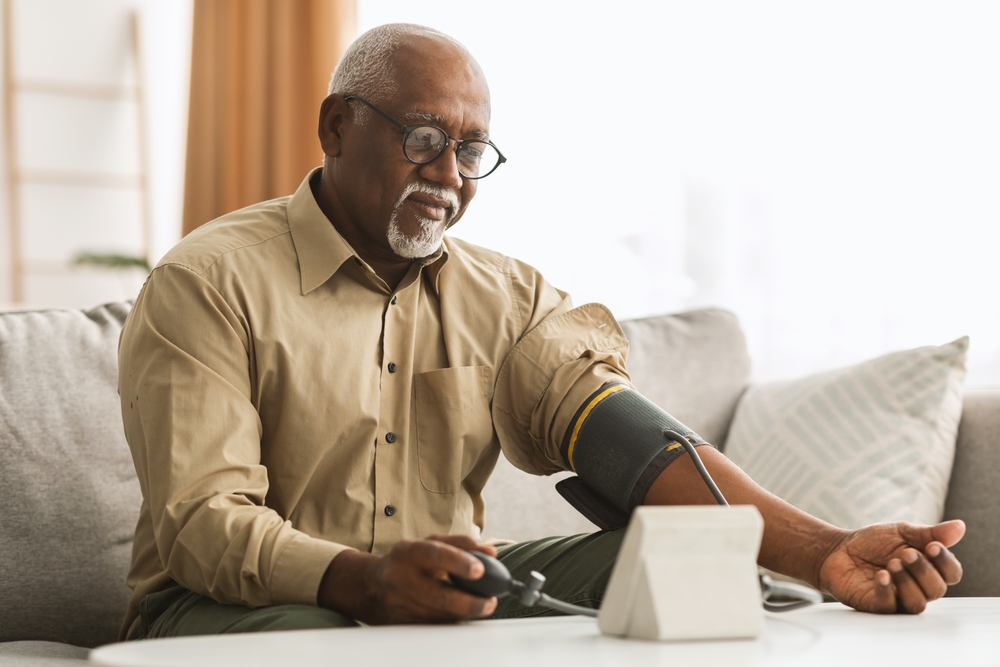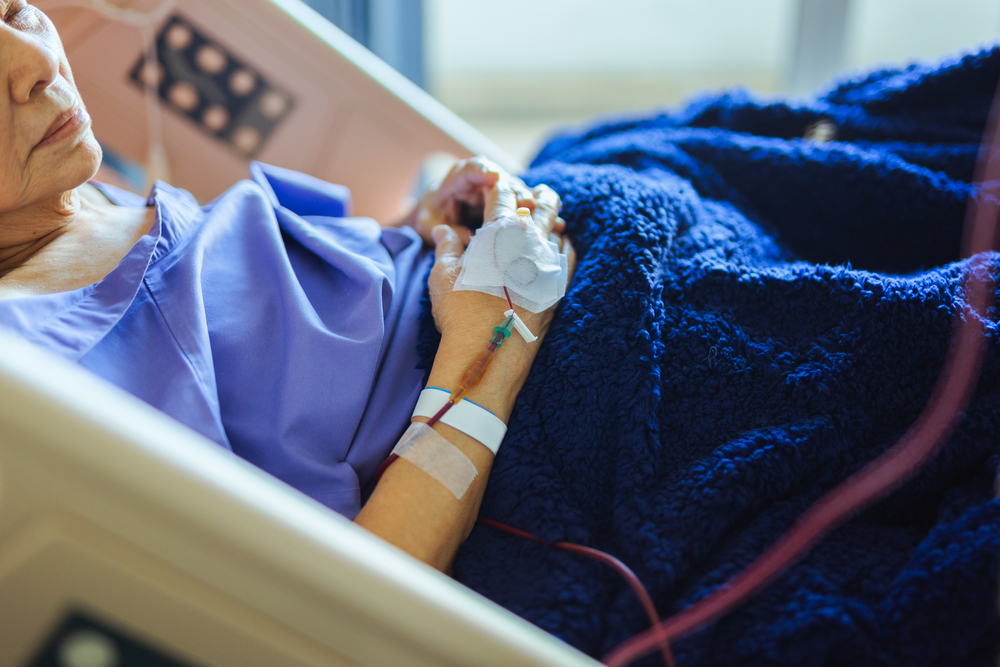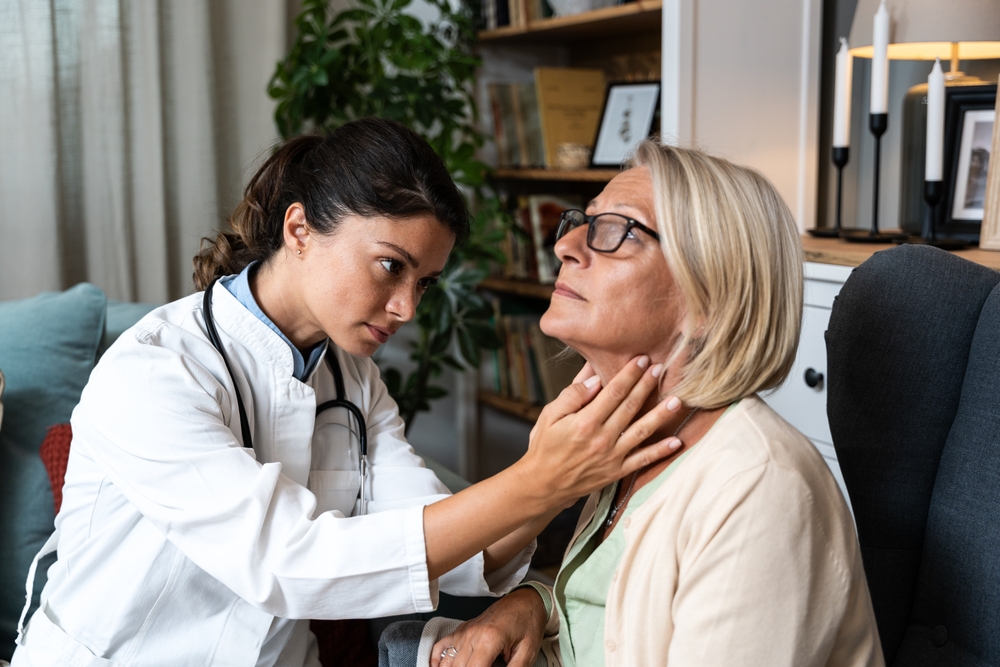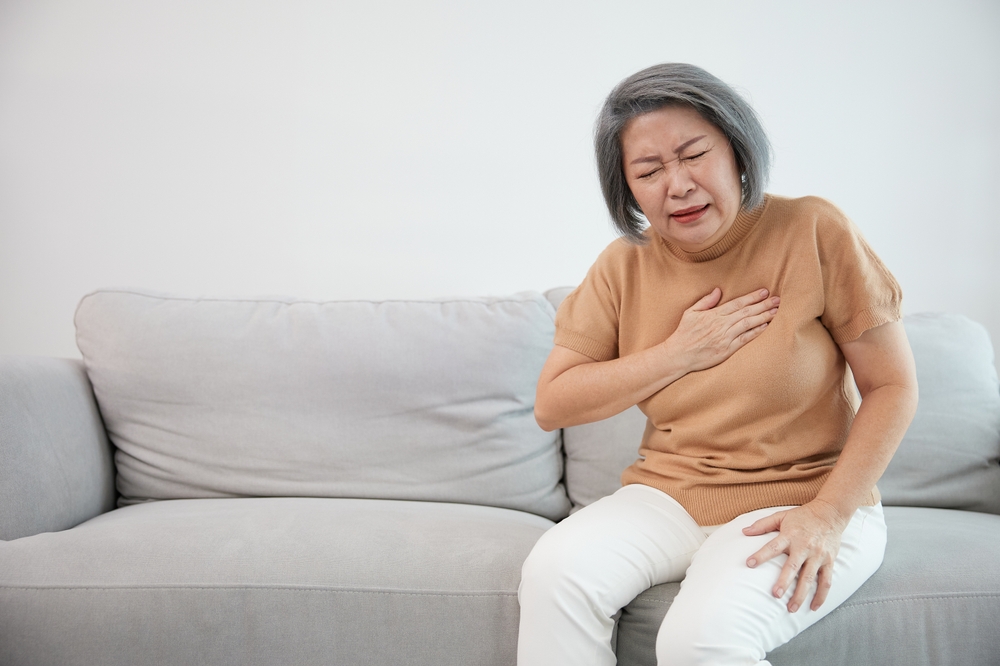Causes of High Blood Pressure in Elderly Adults
Category:

High blood pressure affects nearly half of all adults but is especially common among the elderly with 60% of Americans over the age of 60 reporting high blood pressure.
Often called the “silent killer” — high blood pressure usually doesn’t cause obvious signs of illness. But if sudden high blood pressure in the elderly is left untreated, it can lead to serious health problems like heart disease, vascular dementia, and stroke.
The good news is that with lifestyle changes and medication, hypertension in the elderly can often be managed before it becomes a serious issue. In this post, we’ll break down the causes of high blood pressure in the elderly and give you tips on what to do if you notice a sudden rise in blood pressure in elderly patients.
What Causes High Blood Pressure in the Elderly?
The most common cause of high blood pressure in the elderly are the natural changes our vascular system goes through. As we age, our arteries get stiffer, making us more prone to high blood pressure.
This stiffening of the arteries may lead seniors to experience the most common form of high blood pressure in older adults — isolated systolic hypertension — which happens when the first number (systolic pressure) is 140 or higher, but the second number (diastolic pressure) is less than 90. Isolated systolic hypertension has been linked with serious health problems in addition to shortness of breath during light physical activity, lightheadedness upon standing, and falls.
High Blood Pressure and Dizziness in Elderly
Some caregivers may report dizziness in elderly patients with high blood pressure — this is usually a side effect of serious uncontrolled high blood pressure, like a heart attack or stroke.
High blood pressure and dizziness in the elderly may also be a sign of a specific and rare type of high blood pressure called pulmonary hypertension. This form of hypertension causes increased pressure on your lungs, making your heart work harder to get oxygen to the lungs — leading to symptoms like shortness of breath and dizziness.
About one-third of Americans with high blood pressure do not present symptoms for months or even years — which can make identifying the cause of blood pressure spikes in elderly patients challenging. If you notice a sudden rise in blood pressure in elderly patients accompanied by dizziness, contact their doctor right away.
Seniors may also experience dizziness as the result of low blood pressure or as a side effect of antihypertensive medications lowering their blood pressure too quickly. This risk is heightened when diuretics are used to help manage hypertension.
Download Our FREE Path to Care Guide
Sudden High Blood Pressure in Elderly
If you’re noticing signs of sudden high blood pressure in your elderly patient, take action immediately. By the time your senior is exhibiting symptoms like dizziness, they may already be at serious risk.
Talk to their doctor about managing hypertension with antihypertensive drugs and consider keeping a journal to identify potential causes of high blood pressure in elderly patients like excessive sodium intake, alcohol abuse, or smoking. Often, lifestyle adjustments are enough to greatly reduce the risk of hypertension in the elderly.
If you need support caring for an elderly loved one with high blood pressure, contact our caregiving team today to learn more about our home care services at 1-800-GRISWOLD or find a Caregiver near you.
Subscribe
Date: 2024-10-23
Category:


